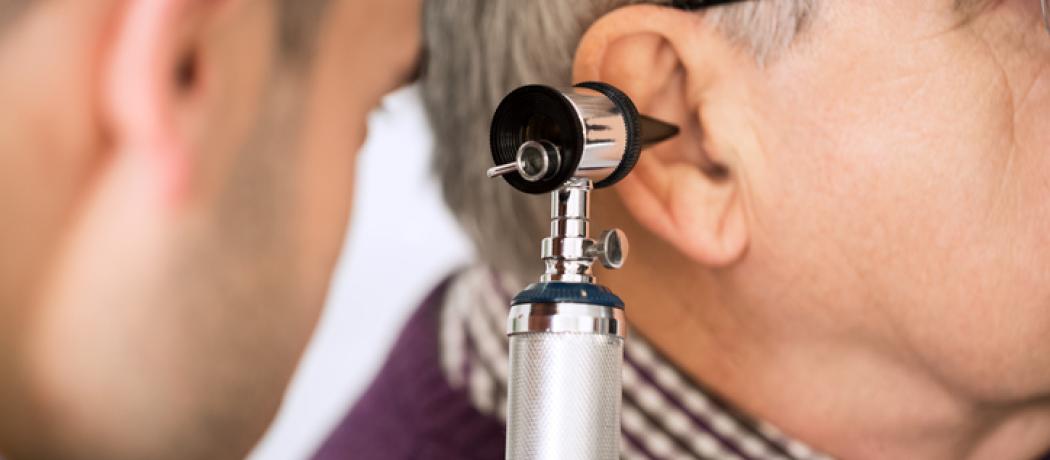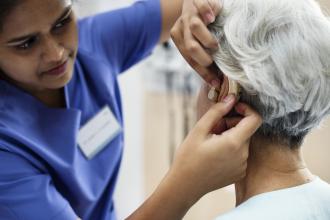I dedicate the following narrative medicine history to International Hearing Day on 3 March 2025.
In the mid-1930s, when I was 7 or 8 years old and living in my native Hungary, each time I had a bad cold I ended up with a painful earache. It made me cry. At least twice, my parents called the ear doctor, who, in the custom of the times, arrived on his bicycle, carrying his black doctor’s bag in a basket attached to the handlebar. He sat on my bed, put on his head mirror, not so gently pulled my earlobe back and said, “tsk, tsk,” while shaking his head a bit. Turning away from me, he reached into his bag, fussed about in it, and asked me to hang on to my mother’s hand. He told me I would feel pain for a moment but then I would feel much better. My tears flowed as I hung onto my mom’s hand. The doctor was very fast. He turned to me and pulled my earlobe back again. I felt a sharp pain for a second, and I cried out, and then I felt a great relief as he mopped up some discharge. Close to 20 years later, in medical school, I learned about otitis media and its potential long-term consequences.
Another 60 years after that, when I was 86 years old and caring for my wife in her dementia, the assisting caregivers gently but repeatedly told me that I should have my ears checked. I was taken aback. I felt quite healthy, and I had trouble accepting that my hearing had deteriorated. Of course, my hearing loss was confirmed at a visit to an audiologist and I soon ended up with hearing aids.
Dialing ahead another 10 years, I am living alone at close to 96 years of age, relatively healthy and with quite an active social life, but with quite a hearing problem. Without hearing aids, I cannot make sense of another person’s remarks unless the talker is standing right next to my ears. Even with hearing aids, I am lost when in the company of several friends in a noisy restaurant. I do have a kind of microphone for when I’m one-on-one with a friend in a restaurant or similar surroundings. That does help. However, I cannot handle the sound in a movie theater, or a public lecture; even television often sounds distorted. The biggest problem for me is talking on the phone. Often when a medical staff person is talking quickly or with a slight foreign accent, while I can hear the sound, I cannot understand what is being said. Added to these problems is the reality that, at my age, I am not savvy at handling some modern communication devices. And yet another problem: in many circumstances, even in doctors’ offices or in stores like pharmacies, it seems to be taken for granted that everybody has good hearing.
Now, with many medical appointments taking place over the phone or on Zoom, I wonder if anyone is ever going to look into an ear with an otoscope or at least ask, “How is your hearing?”
—George Szasz, CM, MD
This post has not been peer reviewed by the BCMJ Editorial Board.
 |
| This work is licensed under a Creative Commons Attribution-NonCommercial-NoDerivatives 4.0 International License. |


